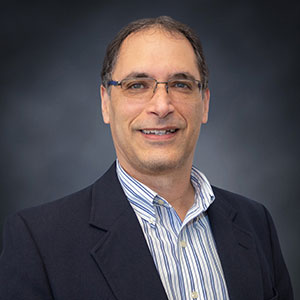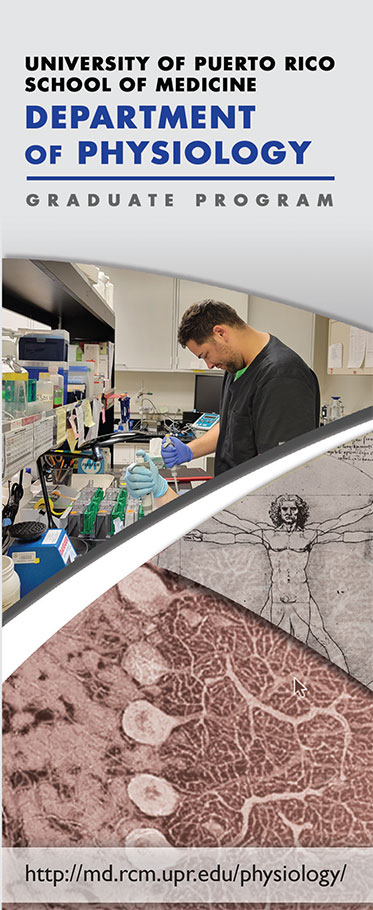Dr. Jorge D. Miranda
Interim Chair

Welcome to the website of the Department of Physiology of the University of Puerto Rico School of Medicine. The Physiology Department is one of the five basic sciences departments of the UPR School of Medicine. It is located in room A-665 on the sixth floor of the east wing in the Main Building (Guillermo Arbona) of the Medical Sciences Campus. The department currently has 8 full-time professors and 6 graduate students. Members of our department conduct research with emphasis in the areas of neuroscience, cardiovascular, cellular and molecular physiology. Research approaches range from the cellular organelle to an integrative approach, including behavioral assessment.
Our graduate students, post- doctoral fellows and faculty are working to unravel the mechanisms of brain and nerve development, cellular communication, hormone action, synaptic transmission, metabolism, and vascular function. In doing so, they are helping to uncover the mechanisms and possible treatments of human disease, including heart failure, diabetes, hypertension, drug addiction, cancer and neurodegenerative diseases. Moreover, research conducted by our faculty and students contributes to a better understanding of the benefits of exercise, the physiology of aging and differences among the sexes. In addition to a stimulating research program, our faculty members participate in the teaching of medical, dental and graduate students from our campus and offer lectures to undergraduate and graduate students from other campuses of the UPR system. They are also part of the faculty of the Intercampus Doctoral Program with the Biology Department of the UPR Rio Piedras Campus.
The main research topics of the laboratories are: Neuroendocrinology, Neurophysiology, Neuroprotection, DNA repair, Cardiac injury, Hypertension and Diabetes, Cancer and Cell injury, Alzheimer and mitochondria, among others. Laboratories in the Department are well equipped for research and training. There are several shared labs that contain confocal and brightfield microscopes, behavioral equipment (treadmills, locomotor activity chambers, EPM, cages for mechanical allodynia studies, grid and beam crossing apparatus), tissue culture, and basic equipment for homogenization, sample and histological preparations, etc. Faculty and students also have access to shared research core facilities supported by the university and RCMI Program. We welcome applications from persons interested in our graduate program and postdoctoral fellow positions.

